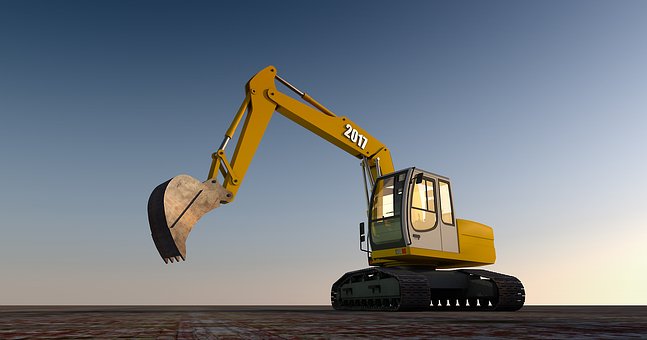Excavators are incredibly versatile heavy machinery used to dig the earth and haul materials across construction sites. Excavators are huge machines that operate with hydraulic cylinders or motors to set large digging arms into motion, allowing them to scoop earth or other materials without needing additional tools.
Excavators include a rotating platform atop a cab for an operator, and have wheels and tracks for maneuvering around the job site, depending on their size. Excavators are powered by a diesel engine and are valued for their strength and their incredible amounts of force which enable them to do particularly tough jobs like removing trees or lifting objects up in the air.
Excavator operators must be highly trained and knowledgeable about how to properly use the machine since it can be dangerous when operated incorrectly. Excavator is a unique piece of equipment that has made day-to-day life easier on construction sites everywhere.
How to Choose the Right School for Excavator Training
Choosing the right school for excavator training is essential to ensure that operators are properly trained and knowledgeable in the use of the powerful machinery.
Before enrolling in a school, prospective excavator operators should research each program to make sure they’re getting the best education possible.
A reputable school should have certified instructors with years of experience, and specialized training in the operation of excavators for both commercial and residential use.
The school should offer hands-on field practice, classroom instruction on safety protocols, and up to date materials about all kinds of excavation equipment. Potential students should also research what type of certification will be offered upon completion of the program, as this can be an important factor for employers when hiring new excavator operators.
The Benefits of Excavator Training Schools
Excavator training schools offer a range of benefits to those looking to become knowledgeable and skilled operators. By taking part in a course at an approved school, prospective excavator operators will learn the important safety protocols associated with operating these powerful machines. They will also be trained on the variety of functions and uses for the equipment, such as digging, hauling, lifting and moving materials.
Additionally, they will learn how to troubleshoot any mechanical problems with the excavator and understand how to properly inspect and maintain their machine in order to ensure it is working safely. With a reputable schooling program, operators will be well-equipped with the knowledge necessary to become an experienced and reliable excavator operator.
How to Succeed in Your Excavator Training Course
Succeeding in an excavator training course requires dedication, commitment and a willingness to learn. Before engaging in any excavation training, it is important to understand the fundamentals of operating an excavator and be familiar with the safety protocols.
During a course, prospective operators can expect to learn about the various components of the excavator, how to safely operate it and move heavy materials with its powerful hydraulic arms.
They will also be trained on how to recognize and troubleshoot any mechanical issues, as well as the proper inspection and maintenance techniques.
To ensure success, students should pay attention to lectures and demonstrations, complete all coursework on time and take advantage of any hands-on field practice opportunities. With the proper knowledge and a diligent attitude, students will be more than capable of becoming a qualified excavator operators.
FAQS
Q: What kind of certification do I need to operate an excavator?
A: To become an excavator operator, you need to enroll in an approved schooling program and obtain the necessary certification.
Q: What are the typical job duties of an excavator operator?
A: Excavator operators typically work in the construction industry to move and lift materials, including earth, rocks, and debris. They are responsible for operating the machinery in a safe manner
schooling


Comments are closed.